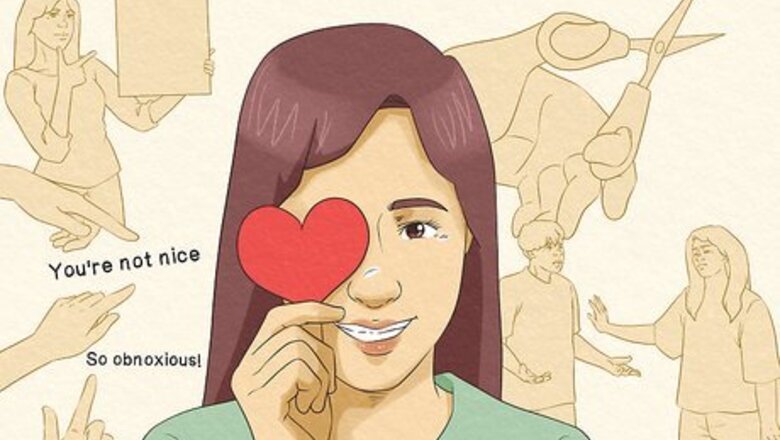
views
- When you feel unlovable, you may believe that other people can’t or won’t love you. However, feeling unlovable doesn’t actually make you unlovable.
- Factors like low self-esteem, childhood trauma, and abandonment issues may lead you to feel like you’re unlovable, even though you’re absolutely worthy of love.
- Overcome your self-defeating feelings by cultivating a more positive mindset. Try affirmations for self-love, like “I am always enough,” and “I deserve happiness.”
Is it possible to be unlovable?
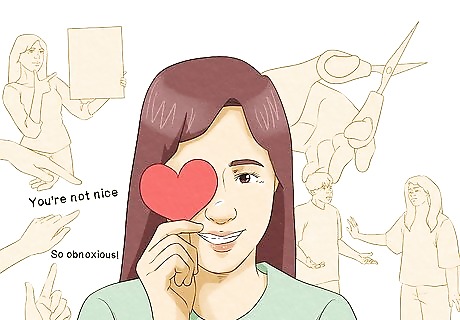
Feeling unlovable does not mean you’re actually unlovable. Rather, it means you believe other people can’t or won’t love you—but ultimately, those feelings aren’t true. Thus, there are no signs or reasons that can prove you’re unlovable, because the truth is that nobody is unlovable (including you). Rather, external causes in life may lead you to feel bad about yourself. If you feel unlovable, you may experience that in a number of ways: You may feel like a fundamentally flawed or even bad person and therefore believe that you’re impossible to love. You may feel like you don’t deserve to be loved, possibly because of prior mistakes in your life that you haven’t forgiven yourself for. You may feel like love is for other people but not you, or that you’re not good enough to be loved. You may have a tendency to self-sabotage your relationships by pushing people away, and feel like that pattern of behavior makes you impossible to love. No matter how you experience these feelings, it’s important to remember that you are worthy of love regardless!
Reasons You May Feel Unlovable
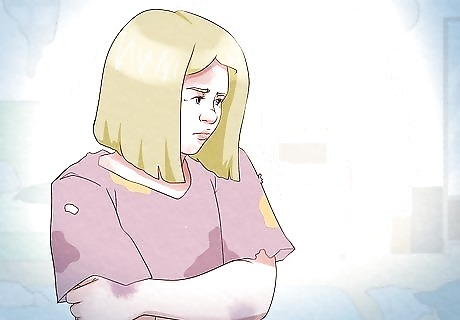
Abandonment issues If you have abandonment issues, you may feel insecure about your relationships and feel you don’t deserve love from friends or partners. Abandonment issues often stem from the type of attachment style you develop in early childhood. If you feel supported and cared for, you’re more likely to develop a secure attachment style—but if you experience neglect or abandonment, it may leave you with a deep sense of insecurity. For example, if your caregiver neglected you, you may have grown up thinking they didn’t love you. As a result, you might lack confidence in your current relationships (and how lovable you are). The truth is that any abandonment you may have experienced in your life isn’t your fault at all and doesn’t affect how lovable you are. The fault lies solely with the person who abandoned you. The most important thing is that you stop perpetuating the cycle of abandonment by learning how to change your thoughts and conclusions about your feelings. Secure people feel their painful feelings but then shift into neutral, acknowledging the worth of both themselves and others, even if they don't see eye-to-eye. Feel like you might have abandonment issues? Take our quiz to find out.
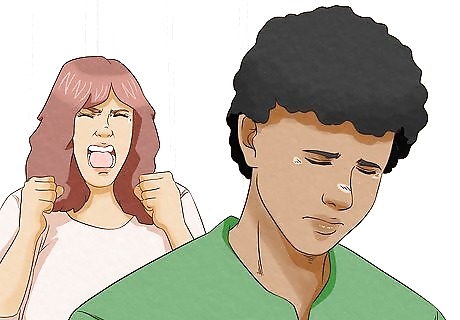
Abuse Both physical and emotional abuse can devastate your mental health and self-confidence, causing you to feel unworthy of love. Abusers often find ways to convince you that you deserve the mistreatment, aren’t worthy of anything else, or that nobody else will want you—even though it’s completely untrue. It’s also a form of gaslighting, which is essentially a manipulation technique designed to distort your perception of reality. The most important thing is for you to acknowledge that your inner critic might say the same things as your abuser. Find this voice and correct it with positive affirmations. Again, practice shifting into neutral, find your worth, and remind yourself that it's okay to have your own back when it feels like no one else does.
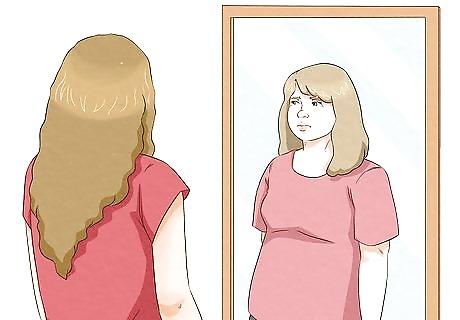
Low self-esteem If you have low self-esteem, that basically means you struggle with your sense of self-worth and have a highly negative perception of yourself. You may not feel like you have much to contribute to the world (even though that’s not true) and focus entirely on your flaws and shortcomings rather than your strengths and talents. In short, those negative feelings make it harder to set boundaries, manage relationships, and believe that you’re lovable. Low self-esteem has many causes, from childhood trauma to unhealthy relationships as an adult. Luckily, there are also many ways to build up your confidence and banish your low self-esteem. The most important thing is to be brave and feel your feelings. If your feelings seem too big, find someone to talk to about them. You build your self-esteem by trusting that you can handle your feelings, even if that means reaching out for help.
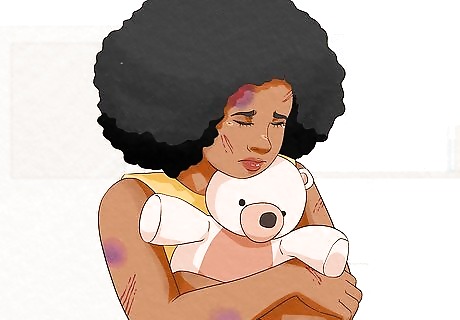
Childhood trauma Core beliefs often develop during childhood—so, if you believe that you’re unlovable, it’s highly likely that mindset started to develop at a young age. Childhood trauma can take many forms—you may have been neglected, lost a parent or sibling, or had an unstable home life with a parent who was mentally unwell. Trauma may cause you to feel like you deserved what happened or that it made you unworthy of love, even though that absolutely isn’t true. Sexual abuse during childhood may also be a factor; it may leave you feeling like the abuse was your fault somehow or that you’re damaged and impossible to love, neither of which are true. Even if your caregiver seemed loving and attentive on the outside but acted controlling or neglectful behind closed doors, that behavior can cause you to feel unlovable. Trauma also doesn’t necessarily have to happen during childhood to make you feel unlovable; adults experience it too. It can be anything from bullying, discrimination, or isolation to physical injuries and abuse. Getting a chance to process and release those hurts that were too big to process when you were little helps you build a new and positive sense of self.
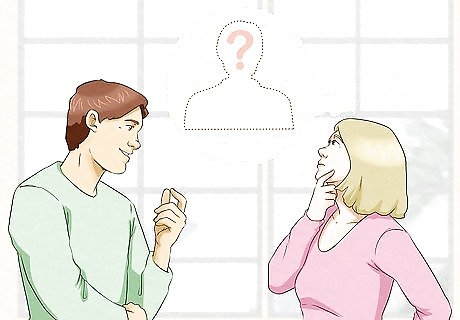
Selective memory Selective memory often goes hand-in-hand with low self-esteem and insecurity. When you have a selective memory, that essentially means you tend to hold onto specific (negative) memories and use them to reinforce the distorted core belief that you’re unlovable. It’s typically hard to see the bigger picture or use context clues when you have a selective memory; you may only see the things that confirm your fears. For example, you might remember a day that you told your partner you loved them, and they didn’t say it back. That memory might cause you to start assuming your partner doesn’t love you. However, you might also be ignoring the context that would explain why they didn’t say it back. They might have been absorbed in a book, distracted with work, or doing something noisy and just didn’t hear you, for example. It's important to remember that our minds will engage in mood-congruent memory—if you notice this, think of it as a time to process and release the feelings that are there, and get the information you need to move forward in a way that better meets your needs.
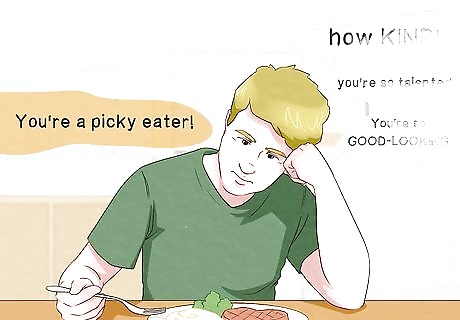
Selective attention Selective attention is similar to selective memory. When you only pay selective attention to what other people say, your information comes in through a filter, and you only focus on certain things. Therefore, if you have low self-esteem, you may only hear things that confirm your negative beliefs—and you might filter out all the positive things people say about you. For example, say your partner regularly tells you how talented, kind, and good-looking you are. Then, one day, they mention that you’re a picky eater. If you have selective attention, you might focus on that one tiny criticism and use it to convince yourself that your partner really doesn’t like you at all, ignoring all the love and affection they give you normally.
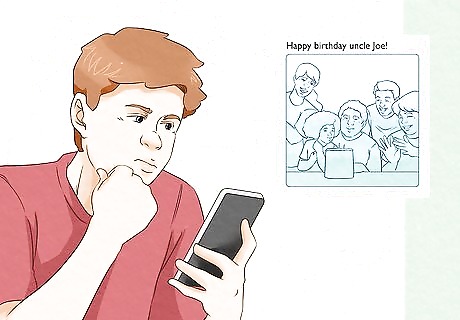
Selective interpretation Selective interpretation means interpreting situations and behavior through a lens that confirms your belief that you’re unlovable rather than looking at each situation objectively. If you tend to do a lot of selective interpretation, you may interpret everything that happens around you as negative and overgeneralize to make situations fit your version of events. For example, you might get upset that your friend didn’t invite you to their birthday dinner and assume that means they don’t like you anymore—without processing the fact that it was a family-only dinner. Remember: selective memory, interpretation, and attention are all ways that your mind distorts facts. You may be telling yourself one thing, but the people around you are likely telling you something else: that you are loved.
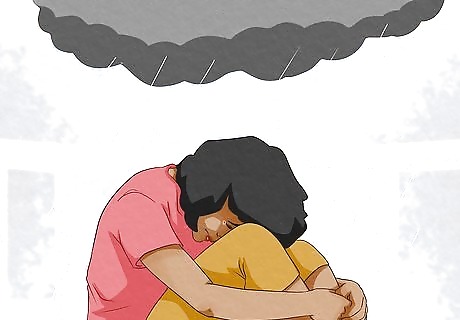
Depression Depression changes how you view yourself and your relationships because it causes cognitive distortions (beliefs with no basis in reality), which trap you in a cycle of negativity. No matter how reassuring your loved ones are, your brain may amplify all of your negative beliefs about yourself until you feel unworthy of their care (even though you absolutely are). Essentially, when you’re dealing with depression, it’s harder to convince yourself that your negative thoughts are untrue—and that you’re loved and wanted.
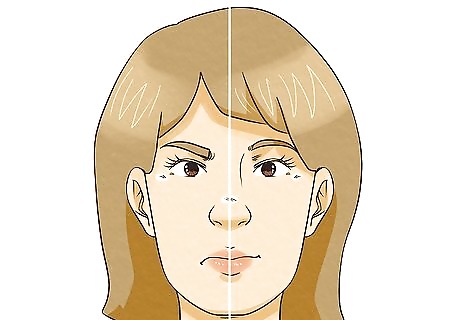
Borderline personality disorder Borderline personality disorder (BPD) causes extremely unstable emotions and may make you feel unlovable as a result. One of the main symptoms of BPD is “splitting,” which is an all-or-nothing kind of thinking that leads to a very negative perception of yourself; one moment, you feel loved, and the next, you feel like you’re being completely abandoned. When you’re dealing with BPD, it’s harder to see both sides of a situation at once—either everything is great, or it’s all wrong. For example, you might be having a great day with your partner, but if they do something small to upset you, your mind might immediately assume they hate you or don’t care about you. BPD also involves an intense fear of abandonment. You may worry that you’re “too much” or that your loved one could turn on you—although your loved ones likely still care deeply for you, even when you think otherwise.
How to Cope with Feeling Unlovable
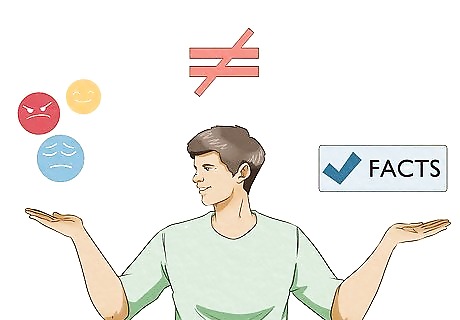
Acknowledge your mindset and remember that feelings aren’t facts. To change your feelings, it’s important to acknowledge that they exist. Remind yourself that when you feel unlovable, it’s not because you’ve done something to deserve it. An outside force—whether it’s depression, attachment issues, or something else—is causing your feelings, but that doesn’t make them true. Your thoughts can be inaccurate; you don’t have to accept them as fact. Try not to get angry with yourself when you start feeling unlovable; you’ll be able to change those feelings in time, but it won’t happen all at once. Be patient with yourself and remember that those negative thoughts aren’t always voluntary, especially with something like low self-esteem contributing to them.
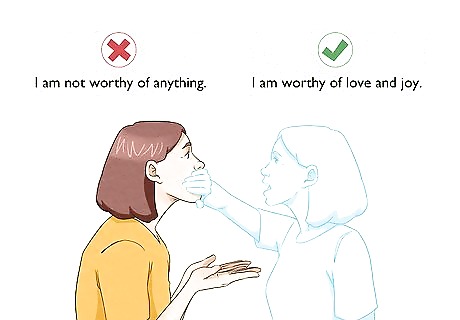
Catch your negative self-talk and replace it with affirmations. Learn to recognize the moments when you start thinking unkind thoughts about how unlovable you are. Press pause and immediately disagree with that thought. Then, out loud (if you can), recite a positive affirmation to contradict that thought and build a sense of self-love in place of all the negativity. It’s okay to disagree with thoughts that aren’t true! Try affirmations like: “I have unconditional love for myself.” “I am worthy of love and joy.” “I am brilliant and multifaceted.” “I am always enough.”
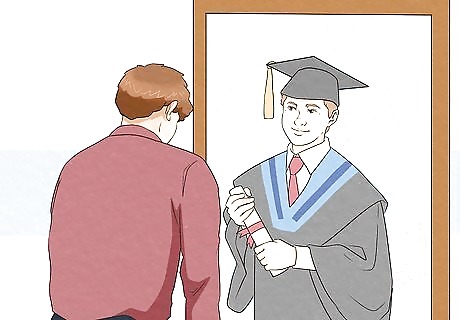
Stop yourself from comparing your experiences to other people’s. Sometimes, it’s hard to feel like your emotions are valid because you may feel like someone else has it worse or is more deserving of love than you. Remind yourself that there’s no need to compare yourself to anyone else; your feelings and experiences are valid, no matter what, and love isn’t something that only a few people deserve—it’s for everyone. If you start comparing yourself to someone else, try to catch yourself and stop that train of thought. Over time, it’ll become easier and easier to do.
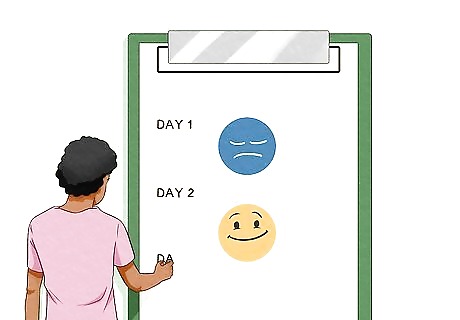
Write down your feelings in a journal. Journaling can be an easy way to strengthen your mental health and process your feelings in a safe place. Write an entry whenever you feel unlovable, and try to identify possible patterns or triggers that may be causing those negative thoughts. Tracking your moods may help you put your feelings into perspective and interpret them in a more positive way. There are other ways to boost your self-esteem, too. Try mindfulness meditation or practicing consistent self-care in addition to your journaling. For your journal, try asking yourself "What is theirs?" "What is mine?" "What is ours?" and "What has nothing to do with either of us?" This exercise can help you break out of all-or-nothing thinking.
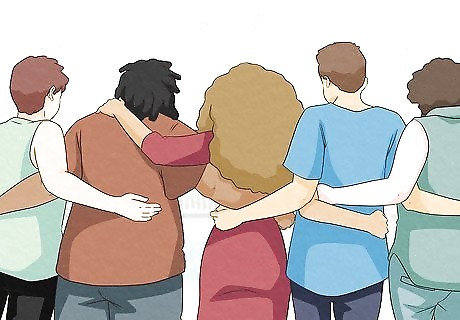
Maintain a strong support system. Find people who positively influence your life and treat you with unconditional love and respect. A solid support system can help you prevent self-sabotaging behaviors and bolster you when you’re feeling blue. Addressing your negative feelings about yourself (and the root cause) is up to you, but a support system reminds you that you aren’t alone! Your support system could be friends, family members, or a partner—the more, the better. The most important thing is having a few trusted confidantes you know will always stand by you.
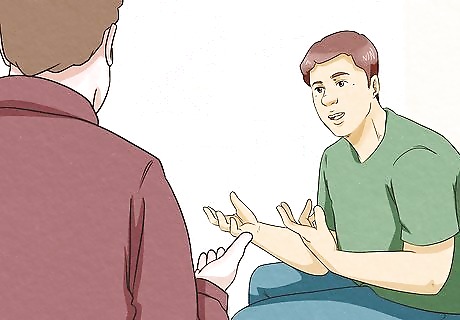
See a therapist to help you overcome feelings of being unlovable. Cognitive behavioral therapy (CBT) is designed to help you identify unhelpful or harmful thoughts and learn to replace them, thus developing a healthier mindset for the future. Learning to identify those maladaptive thoughts can be a challenge, but if you find a therapist, they can give you the support you need to do it. Other types of therapy that may be helpful include: Dynamic interpersonal therapy (DIT). DIT focuses on figuring out how daily interactions affect your moods; it can help you understand how past experiences contribute to your current mindset. Acceptance and commitment therapy (ACT). ACT can help you acknowledge your personal beliefs and incorporate them into your daily life. Dialectical behavior therapy (DBT). DBT may be useful if you struggle to maintain relationships; it’s intended to help you manage your emotions and create meaningful change in your life. Schema therapy. Schema therapy was originally intended to help those with personality disorders (like BPD), but it can also help just about anyone get in touch with their feelings and learn to make healthy choices for themselves. Online therapy. Online therapy tends to be more affordable, convenient, and offers greater flexibility to fit your schedule. Consider using a platform like Talkspace or Cerebral for therapy.
Effects of Feeling Unlovable
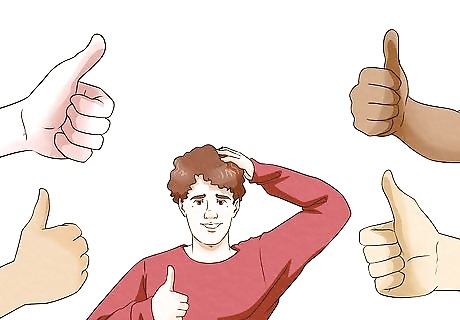
You may pick up people-pleasing habits. All humans have a basic need to feel loved and accepted. So, if you feel unlovable, you might end up constantly trying to make others happy because it feels like the only way to get their approval. If you’re a people-pleaser, you’re likely kind and empathetic—which are great qualities to have—but always worrying about other people’s feelings makes it hard to advocate for yourself. Trying to please other people might also make it harder for you to recognize when you’re being manipulated since it might just feel like you’re doing favors because it’s the right thing to do. If you feel you need to earn love, it may seem like you have no choice but to focus all your energy on gaining others' approval. Focus on building your secure base inside by facing your inner critic and really asking yourself what it is that you need/want. Make it your goal to see the situation as neutral so you can get clear about your feelings and needs.
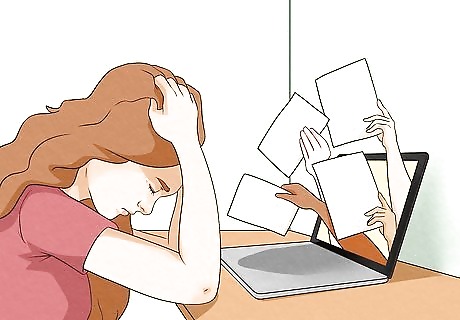
You may have trouble setting healthy boundaries. If you feel unlovable, you may also feel like your needs come second to everyone else’s, and sacrifice your needs to fulfill theirs or to try to get them to like you. Unfortunately, abusive people may notice this and take advantage of it. Feeling unlovable may also cause you to feel like it's your fault for getting mistreated, which is exactly what an abuser wants you to think. Remember: abuse is absolutely unacceptable no matter what. Nobody deserves that kind of behavior, and it’s not your fault if it happens to you. Try to keep in mind that your needs matter too! You’re worthy of love just like everybody else, and you’re also worth taking care of.
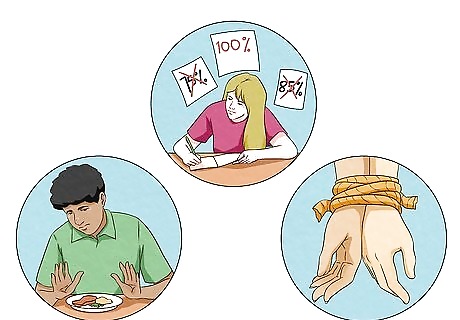
Feeling unlovable can lead to related psychological conditions. It’s important to address the problem as soon as possible if you catch yourself genuinely thinking that you’re not worthy of love. While it may not seem like a big deal, that mentality can feed into other issues and disorders that may potentially arise from feeling unlovable. Those conditions include: Addictive behavior (like alcoholism or drug use) Eating disorders Codependency Fear of intimacy Lack of identity Perfectionism Repressed anger Trust issues In very serious cases, feeling unlovable may even lead to suicidal thoughts. If you’re ever in crisis, reach out for help immediately and call the National Suicide and Crisis Lifeline at 988.










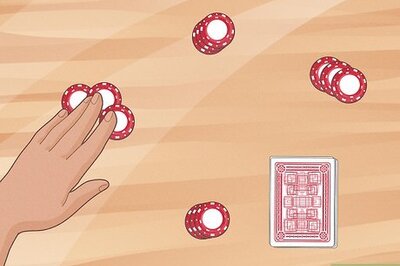




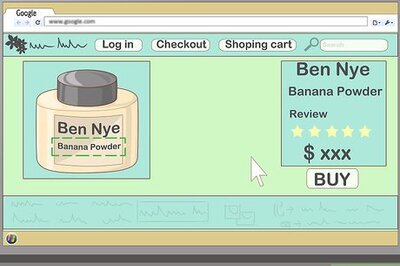

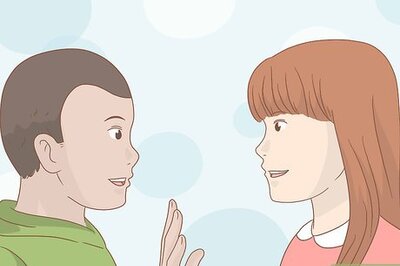


Comments
0 comment